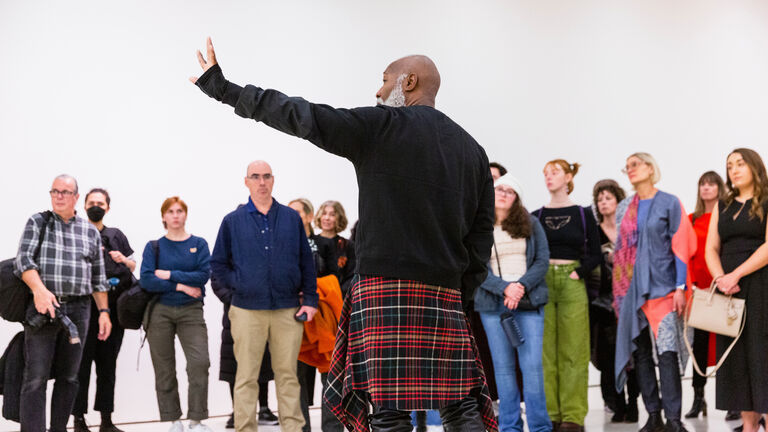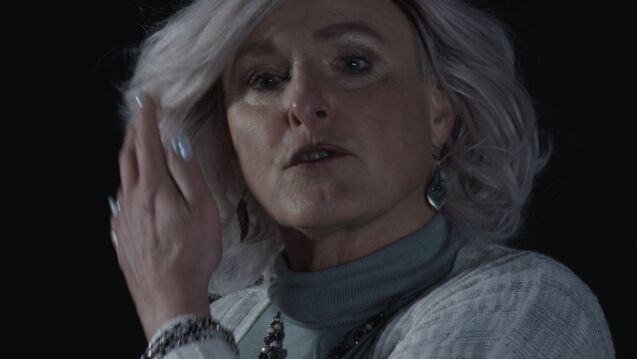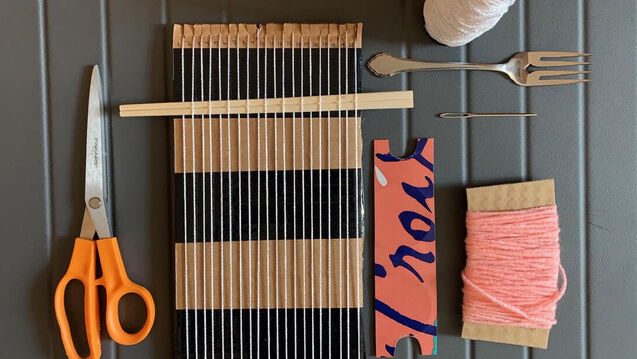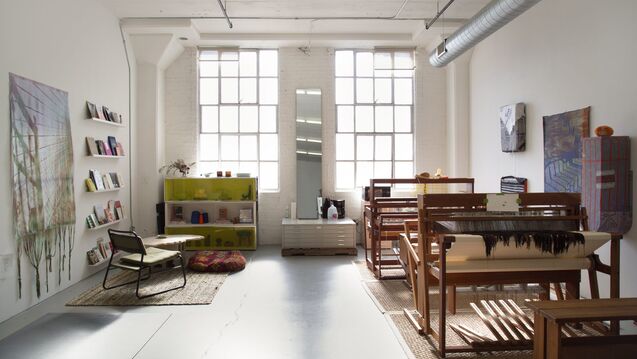
Teaching Resources
Pedagogical Support
The Center for Teaching and Learning is pleased to offer the following programs, resources, and services.
Schedule an appointment to discuss your course materials or teaching experiences.
Learn from colleagues in a creative, collaborative, and collegial environment.
Check out books from the CTL Library located in MacLean 303.
2024: Ecstatic Pedagogy
Inspired by bell hooks, the CTL collaborated with its faculty-led steering committee to select “ecstatic pedagogy” as the theme of this year's Learning Lab. The topic centers teaching and learning as joyful activities that may inspire new modes of understanding and describing student and faculty success. At the same time, it reflects the pleasure that hooks attributes to engaged pedagogy, underscoring that the experiences of teachers and students animate art and design education’s transformational potential.
Initiatives and Opportunities
The Center for Teaching and Learning is pleased to fund faculty-led projects and course development work through its special initiatives and opportunities.
Funding to support faculty develop new course materials.
Faculty led workshops that address a range of pedagogical topics.
Join our inter-disciplinary research community.
CTL Research Guides
Our Standards
The Center for Teaching and Learning enriches the pedagogical practices and teaching modalities represented in SAIC’s academic and studio-based departments. Please consult the following sections to learn about our standards and guidelines.
-
The Center for Teaching and Learning enriches the pedagogical practices and teaching modalities represented in SAIC’s academic and studio-based departments. To this end, we acknowledge that education necessarily requires us to confront the unknown. This important work may lead to feelings of anxiety, discomfort, or vulnerability. To nurture a caring and compassionate environment for all SAIC faculty, we provide these practical guidelines when participating in CTL events:
1. Please be courteous and respectful toward your colleagues. This includes: face-to-face meetings, communication during workshops, and online spaces.
2. When engaged in a conversation or responding to a presentation, practice active listening and situate your contribution/response to a discussion by referencing something significant about your colleague(s) role in it.
3. Be mindful of how you occupy space and the information that you may intentionally or unintentionally communicate to others.
4. Consider how your actions, diction, and tone may affect others or, unintentionally, reinforce exclusionary biases.
5. Offer constructive feedback so that the CTL can build a culture of accountability that best serves SAIC educators, students, and stakeholders. -
The Center for Teaching and Learning celebrates Chicago’s rich history of community building and collective activism. This history informs SAIC’s “Diversity Mission Statement,” which claims that:
The School’s primary purpose is to cultivate a campus designed to encourage the discovery and development of significant ideas and images. The School is committed to assembling a diverse community of faculty, students, and staff and to nurturing and creating an environment in which those different perspectives and backgrounds can be heard, valued, and utilized.
The CTL believes that in order to realize SAIC’s commitment to accessibility, diversity, inclusivity, and equity, we must first recognize that Anglo-European aesthetic, epistemological, and ontological categories overwhelmingly determine the “discovery and development of significant ideas and images.” We therefore welcome any and all artists and educators to work with us to devise and adopt anti-racist, critical, decolonial, feminist, and queer pedagogical practices. Such collaborations must actively resist systemic oppression and galvanize social change. -
The Center for Teaching and Learning recognizes that students and faculty experience a variety of situations and conditions that can affect their performance in the classroom and studio. Rather than distinguish between mental and physical health, we approach our colleagues with a holistic appreciation of their wellbeing.
We encourage all faculty to participate in our programs, as well as to inform us of opportunities to develop resources and tools that enhance their teaching experiences. To connect you with other educational professionals committed to wellness and mindfulness practices, we recommend that faculty participate in the Wellness Center’s ongoing programming. -
Delinda Collier, Dean of Graduate Studies
Dawn Gavin, Dean of Undergraduate Studies
Amelia Noel-Elkins, Associate Provost
Staci Zake, Director of Academic Program Review and Assessment
Melanie Emerson, Dean of Libraries and Special Collections
Valerie St. Germain, Director, Disability and Learning Resource Center
Leila Wilson, Director, Writing Center
Kirin Wachter-Grene, Assistant Professor and Coordinator of the First Year Seminar Program
James Elkins, E. C. Chadbourne Professor of Art History, Theory, and Criticism
Anjulie Rao, Lecturer, Architecture, Interior Architecture, and Designed Objects
Rachel Niffenegger, Director, Academic Spine
Jennifer Berner, Coordinator, Academic Access Program
Kelly Kaczynski, Lecturer, Sculpture, Fiber and Material Studies
Benjamin Larose, Assistant Professor of Fashion Design
Caroline Bellios, Adjunct Assistant Professor, Fashion Design














